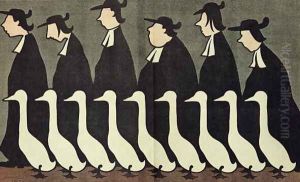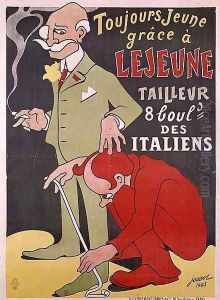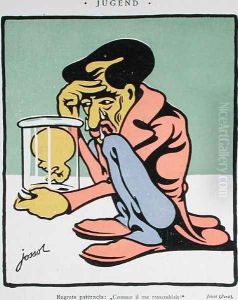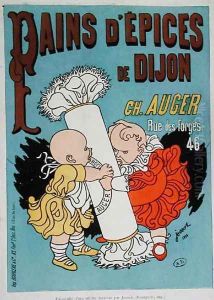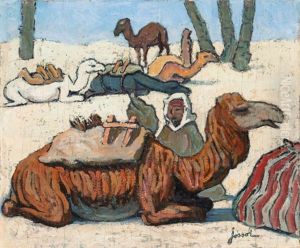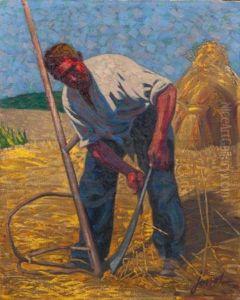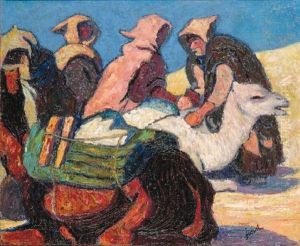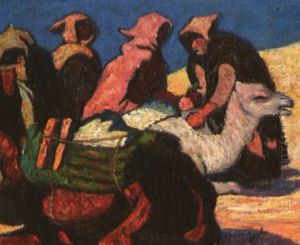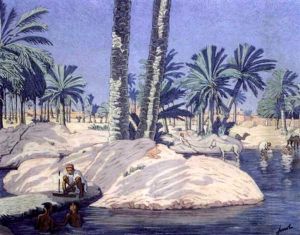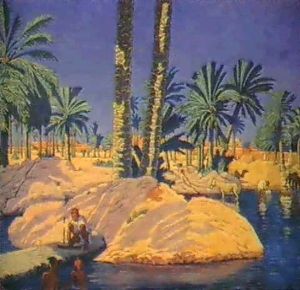Henri Gustave Jossot Paintings
Henri Gustave Jossot was a French artist and writer known for his satirical illustrations and later his adoption of Orientalist themes following his conversion to Islam. Jossot was born on December 16, 1866, in Dijon, France. He began his artistic career as a caricaturist and illustrator, contributing to various periodicals such as 'L'Assiette au Beurre', a famous French satirical magazine, where he gained recognition for his sharp and often biting satirical depictions of French society and politics.
Jossot's style was characterized by its bold lines and clear forms, which were influenced by the Art Nouveau movement and the emerging popularity of Japanese prints in Europe. His work was often controversial due to its critical portrayal of the bourgeoisie, the clergy, and the hypocrisy he perceived in society. Despite—or perhaps because of—this controversy, Jossot's illustrations were highly popular among the avant-garde and those who appreciated his acerbic wit.
In 1898, he experienced a personal and artistic transformation after a trip to Tunisia. Deeply affected by the culture and landscape of North Africa, Jossot began to shift his focus from satire to Orientalist painting, a genre that romanticized the East in the eyes of Western artists. His work during this period was marked by a more serene and contemplative approach, reflecting his personal search for spirituality and meaning.
Jossot's life took another significant turn in 1913 when he converted to Islam, changing his name to Abdul Karim Jossot. His conversion also marked his withdrawal from the art world as he dedicated himself to religious life and Sufism, an Islamic mystical tradition that emphasizes introspection and spiritual closeness with God. He settled permanently in Tunisia, where he lived until his death on April 7, 1951.
Throughout his life, Henri Gustave Jossot remained a complex figure, navigating between cultures and artistic identities. His work continues to be studied for its diverse range of themes, from biting social commentary to the serene contemplation found in his later Orientalist pieces. Jossot's legacy is that of an artist who constantly sought to express his personal quest for truth and understanding, both through his art and his life.
